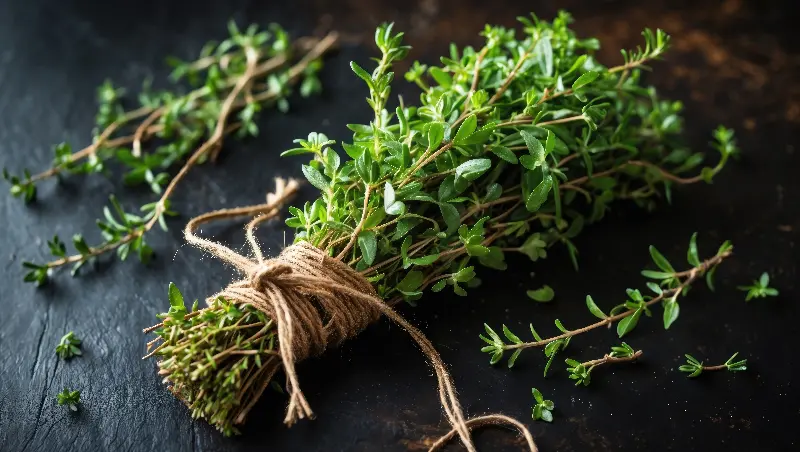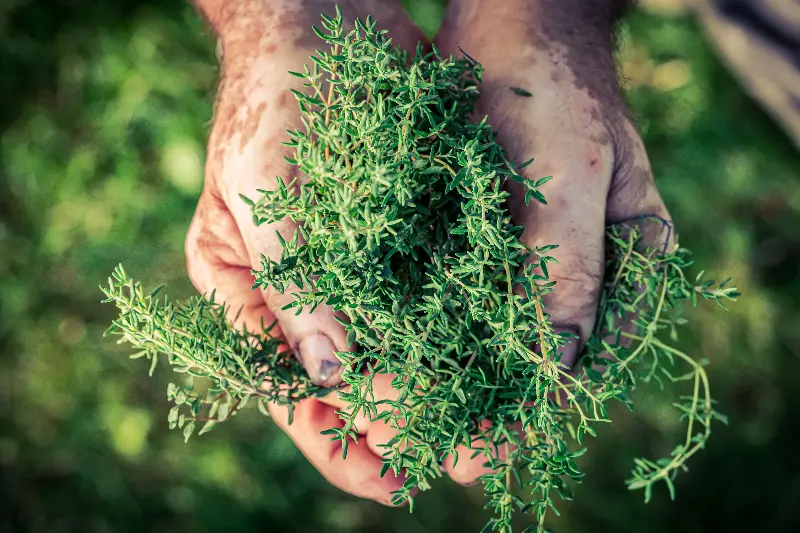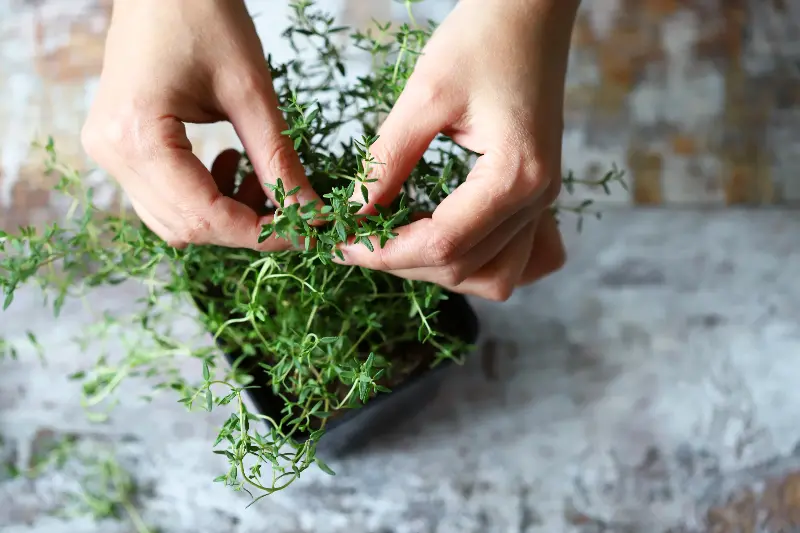Step into any kitchen today and you’re likely to find a humble jar of thyme nestled among the spices. Yet this fragrant herb’s journey to modern pantries is nothing short of remarkable. Tracing back thousands of years, thyme has woven itself through the tapestry of human history — lending flavor, healing powers, and even spiritual protection to those wise enough to embrace its magic.

Originating from the Mediterranean basin, thyme (Thymus vulgaris) was cherished by the ancient Egyptians, Greeks, and Romans. The Greeks, in particular, associated thyme with courage and would often burn it as incense in their temples, believing its smoke to be purifying. Roman soldiers bathed in thyme-infused water before battle, hoping to gain strength and bravery.
In the Middle Ages, thyme’s reputation blossomed further. It was commonly placed beneath pillows to ward off nightmares and gifted to knights as a symbol of admiration. Its enduring presence through the ages is a testament to both its flavor and its folklore.
A Culinary Star That Transforms Dishes
Thyme’s popularity in the kitchen is no accident. With a delicate yet unmistakably earthy aroma, thyme brings depth and complexity to recipes without overpowering them. Its versatility is part of its charm — fresh sprigs can be tucked beneath roasting meats, sprinkled over vegetables, or stirred into soups and sauces.
What sets thyme apart is its adaptability. It can hold its own in robust stews like French cassoulet or lamb dishes, yet it brightens lighter fare such as fish or roasted tomatoes. Unlike some herbs, thyme retains much of its flavor even when dried, making it a pantry staple for cooks year-round. Its slight minty undertone and savory notes elevate everything from herbes de Provence blends to simple omelets.
Remarkably, thyme pairs harmoniously with many other herbs and spices. Whether mingling with rosemary and oregano on a Mediterranean pizza or infusing oils for salad dressings, thyme is the quiet anchor that brings the flavors together.

The Hidden Wellness Wonders Of Thyme
Beyond the kitchen, thyme boasts a treasure trove of wellness benefits that ancient civilizations recognized long before the modern era. Science now supports many of these traditional uses, revealing that thyme is packed with powerful compounds, the most notable being thymol.
Thymol acts as a natural antimicrobial and antioxidant. Studies show that it can help combat bacteria, fungi, and even certain viruses. This explains why thyme oil and extracts have been used for centuries to treat coughs, sore throats, and respiratory infections — remedies that are still found in herbal teas and natural cough syrups today.
Thyme is also a source of vitamins and minerals such as vitamin C, vitamin A, iron, and manganese, supporting the immune system and overall health. With its anti-inflammatory properties, thyme may aid digestion and help soothe minor discomforts. Some research even suggests it contributes to heart health by promoting healthy cholesterol levels.
A fascinating fact: before the advent of antibiotics, thyme was commonly used to sterilize bandages for wounded soldiers, highlighting just how valued its antimicrobial properties were in critical moments of history.

Growing And Using Thyme At Home
The appeal of thyme goes beyond its flavor and health benefits. This evergreen herb is surprisingly simple to cultivate, thriving in pots or garden beds with minimal fuss. All it asks for is plenty of sun, well-drained soil, and a bit of patience. Drought-tolerant and relatively pest-free, thyme is a great choice for novice gardeners or busy city dwellers.
Fresh thyme is easy to use: simply snip a few sprigs, rinse them, and strip the leaves from the woody stems. The leaves can be added directly to dishes or dried for later use. For a simple home remedy, steep fresh thyme in hot water with honey and lemon for a soothing herbal tea.
Experimenting with thyme doesn’t end at dinner. Infuse it into honey for a floral, aromatic sweetener or blend it into butters and marinades. Creative bakers sometimes add a pinch of thyme to shortbread or lemon cakes for a subtle herbal note.

Surprising Facts You Might Not Know
The magic of thyme goes deeper than most realize. In Victorian England, folk believed fairies made their homes in wild thyme patches, and thyme was associated with good luck and vitality. Shakespeare even referenced thyme in "A Midsummer Night’s Dream" as a favored trysting place of fairy royalty.
Beyond the legends, modern researchers continue to explore thyme’s potential — from its role in natural cleaning products to interest in its essential oil for eco-friendly pest control. Some chefs have even experimented with thyme’s tiny, purple-tinged flowers, using them as beautiful, edible garnishes.
Perhaps most enchanting is how thyme endures as a symbol of resilience and hospitality. Its name traces back to the Greek “thumos,” meaning courage or strength — apt attributes for a little plant that’s been cherished, cultivated, and celebrated for millennia.
A Timeless Herb For The Modern World
With every sprinkle or sprig, thyme connects us to a heritage of flavor, health, and wonder. Whether you’re transforming a simple meal or brewing a calming cup of tea, take a moment to appreciate the subtle power of this ancient herb. In kitchens and gardens around the world, thyme’s magic endures — a reminder that sometimes, the greatest treasures are right at our fingertips.
